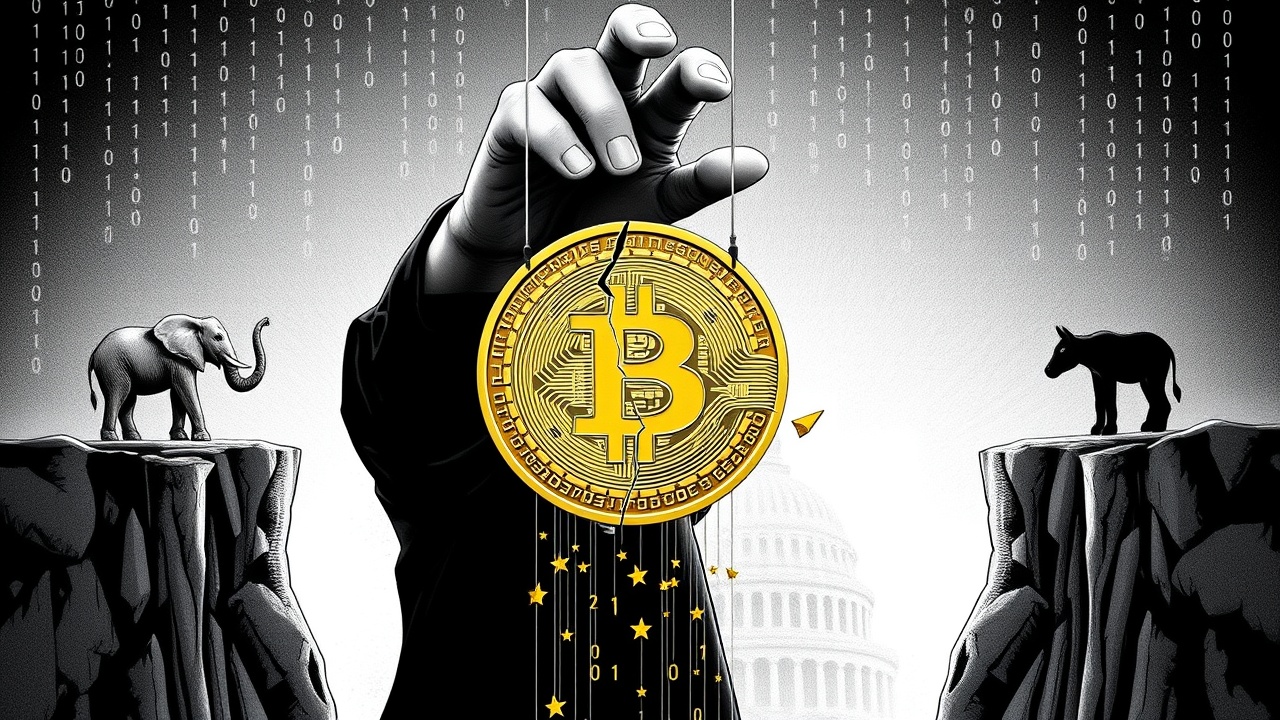Bitcoin: A Unifying Force Beyond Politics
Today, I tuned into CBS’s Sunday Morning for a segment about Bitcoin and, similar to past experiences, I found it lacking. The discussion primarily centered around former President Trump in relation to cryptocurrency, while the foundational concepts of Bitcoin and blockchain technology were largely overlooked. The understanding of Bitcoin remains elusive for many, even after investing significant time in studying it; I continue to discover new insights daily. Yet, one thing is clear: Bitcoin transcends political boundaries.
The Political Landscape of Bitcoin
In a politically polarized America, few issues can unite people from differing political backgrounds, but Bitcoin emerges as one such topic. Contrary to the media’s portrayal of Bitcoin as a partisan debate—labeling it either a right-wing Trump phenomenon or a progressive instrument for enhancing financial access—the truth is more nuanced. Individuals from different political ideologies are drawn to Bitcoin, motivated by distinct but valid reasons.
Ultimately, the essence of Bitcoin is neutrality. It operates independently of one’s political stance—be it conservative, liberal, affluent, or economically challenged. Bitcoin presents a decentralized and inclusive monetary system that anyone can utilize, wholly disregarding political lines. Yet, this innovation threatens established financial systems and governmental monetary control, which leads the media to sometimes mischaracterize it as an ideological symbol.
Bipartisan Support for Bitcoin
The bipartisan support for Bitcoin is tangible. Prominent Republicans, such as Senator Cynthia Lummis, advocate for Bitcoin as a safeguard against inflation and a mechanism for maintaining financial independence. Similarly, Democratic leaders like Kirsten Gillibrand recognize the importance of Bitcoin in safeguarding privacy and promoting technological innovation. Together, they collaborated on legislation aimed at ensuring the U.S. remains a leader in this emerging asset class. The Genius Act, which was enacted in July with robust bipartisan backing, exemplifies this collaborative spirit.
Cities, states, and federal lawmakers from both parties are increasingly considering policies that favor Bitcoin—from tax clarifications to initiatives for innovation hubs. These lawmakers perceive the potential benefits of Bitcoin to empower individuals, enhance technology, and maintain the competitiveness of the U.S. in the evolving digital economy. However, the media often opts for a simplified narrative, framing Bitcoin as a mere pawn in a larger cultural battle—one week aligning it with anti-establishment views, and the next fostering it as a beloved tool of progressive thinkers.
Misrepresentation and the True Nature of Bitcoin
This misrepresentation clouds Bitcoin’s true character. If the public continues to view Bitcoin through a partisan filter, it risks overshadowing its integral potential. Just as the internet of the 1990s was not birthed from one political ideology, Bitcoin is not confined to an ideological box but offers a shared protocol with the potential to revolutionize global finance. Allowing Bitcoin to be subsumed by political agendas only undermines opportunities for innovation and cooperative discourse.
A Call for Authentic Dialogue
In a climate often driven by division, the genuine narrative surrounding Bitcoin is one of unexpected agreement. Both sides of the political spectrum recognize its value, albeit through different philosophical lenses. It’s essential to break free from media-imposed partisan narratives, fostering an authentic national dialogue about Bitcoin and its implications for all citizens, not just the supporters on one side of the aisle.
Note: The views expressed in this piece are solely those of the author and do not reflect the stance of Cryptonews.com. This article aims to broaden the conversation about Bitcoin without offering specific professional guidance.




